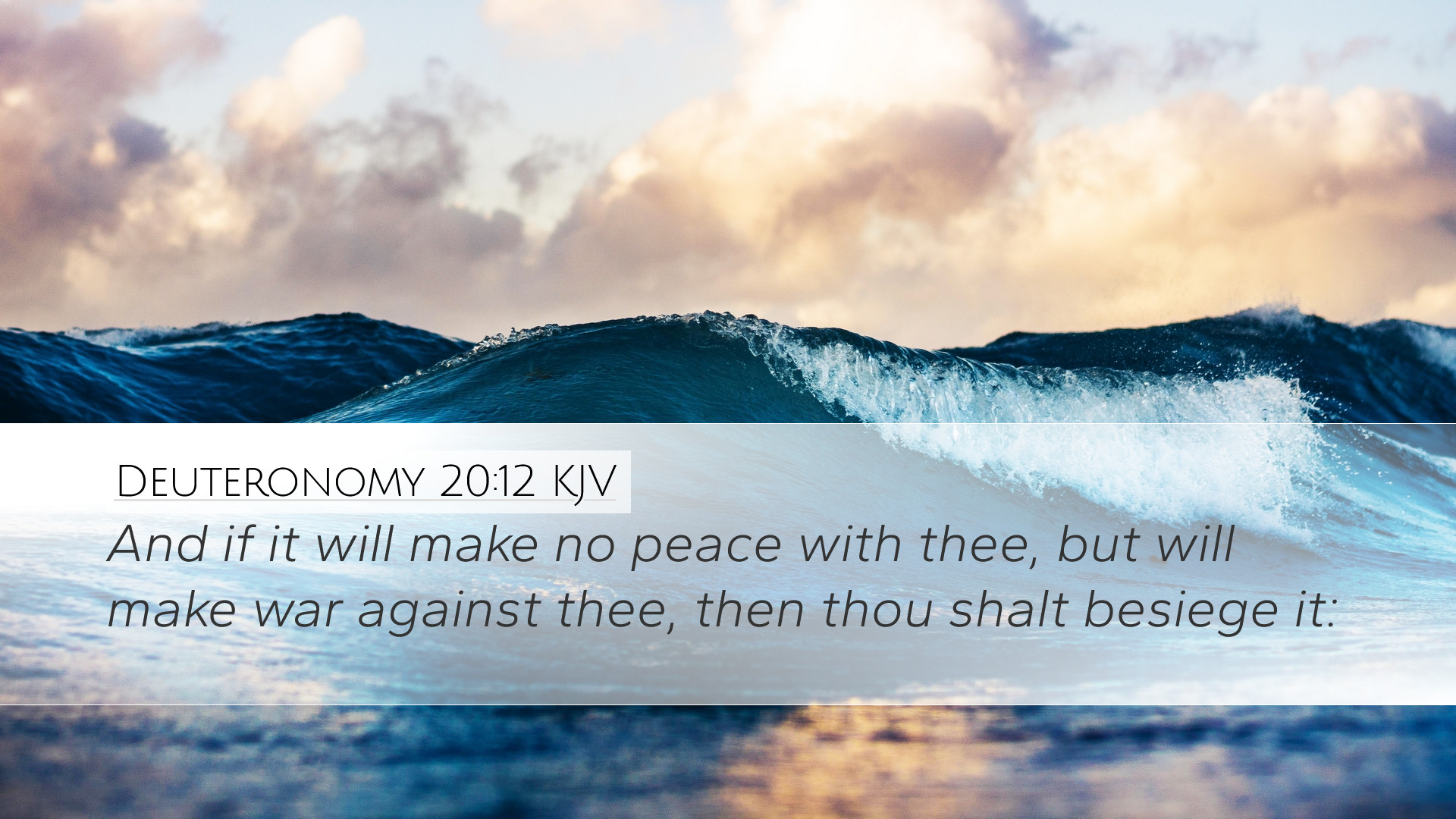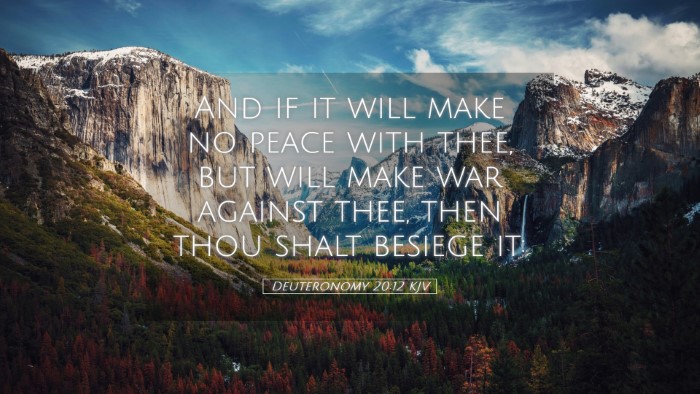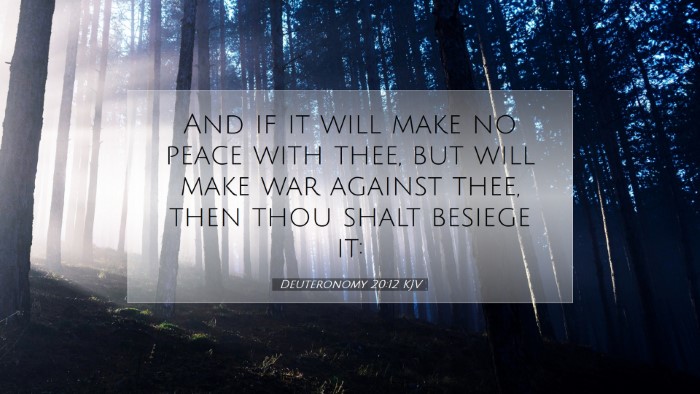Commentary on Deuteronomy 20:12
Verse Reference: Deuteronomy 20:12
"But if it will make no peace with thee, but will make war against thee, then thou shalt besiege it."
Introduction
Deuteronomy 20:12 is part of a broader discourse that deals with the conduct of warfare and the ethical guidelines for the Israelites as they prepare to enter the Promised Land. This verse specifically addresses the approach to be taken when encountering hostile cities. The instructions given highlight the importance of peace and negotiations before resorting to military action.
Background Context
This chapter of Deuteronomy outlines the principles of warfare that were to govern Israel's conquests. The Israelites were called not only to conquer but also to do so in a manner that reflected their covenant with God, emphasizing justice and mercy. The guidance here is deeply rooted in the idea of God as the ultimate sovereign and the expected conduct of His chosen people.
Exegesis of Deuteronomy 20:12
The verse conveys a conditional approach to warfare: if a city does not seek peace, the Israelites are permitted to take military action. The significance of this conditional statement cannot be overstated, as it suggests a divine preference for peace over conflict.
Commentary Insights
-
Matthew Henry: In his commentary, Henry emphasizes the moral implications of this verse. He notes that no one should rush into conflict without attempting to negotiate a peaceful resolution. The principle that the Israelites should first seek peace highlights God's desire for reconciliation and order. Henry expresses that it is a commendable ethos to pursue peace, as warfare should always be a last resort.
-
Albert Barnes: Barnes elucidates the term "besiege," suggesting it reflects a military strategy that is not only tactical but also psychological. By surrounding a city, the besieging forces apply pressure and create a scenario where the inhabitants must confront the dire consequences of their absence of peace. Barnes further explains that this serves as a means to demonstrate the seriousness of rejecting peace overtures from the Israelites.
-
Adam Clarke: Clarke provides an exegesis that delves into the ramifications of besieging a city. He notes that this command illustrates God's providence and judgment, indicating that ongoing hostility may lead to divine allowance for warfare. Clarke stresses that God’s people must conduct themselves with integrity, even in battle, as they are representatives of God’s moral law.
Theological Implications
The broader theological implications of Deuteronomy 20:12 impact how we understand divine instruction and the human propensity towards conflict. It encapsulates a tension between divine justice and mercy. The conditionality placed upon the Israelite's response to aggression reflects God's overarching plan for humanity, advocating for peace while allowing for justice when faced with unrepentant hostility.
Peace and Warfare
The verse rightly positions peace as the ideal state between nations. It prompts deep reflection on how contemporary believers approach issues of justice and hostility. Are modern responses characterized by a willingness to engage in dialogue before conflict? This question is essential in both personal and corporate ethics.
Application for Today's Believers
-
Seeking Peace first: Today's Christians are encouraged to approach conflicts—whether interpersonal, communal, or global—with the aim of achieving reconciliation before resorting to more severe measures.
-
Understanding Responsibility: The duty imposed on the Israelites to engage in warfare reflects a larger truth about responsibility in spiritual leadership. Believers must act wisely and judiciously, recognizing when to pursue peace and when unrepentant hostility necessitates a more serious response.
-
Talk of Justice in Warfare: The mechanism of besieging itself serves a dual purpose. It is both a strategy of warfare and a statement of God's justice, which implies that evil has consequences. Christians should hold this truth as they navigate personal ethics and societal issues around justice.
-
Embodying God's Character: Ultimately, how believers engage in conflict—armed or unarmed—reflects their understanding of God's character. They are called to be agents of peace yet are to uphold justice when necessary, mirroring God's own attributes.
Conclusion
In summary, Deuteronomy 20:12 serves as a vital text for those studying the ethics of warfare and the overarching theme of seeking peace. It reminds us that, as representatives of God, the responsibility to strive for reconciliation is paramount. The commentaries of Matthew Henry, Albert Barnes, and Adam Clarke collectively stress the importance of this posture, ensuring that readers understand the full weight of God's word concerning conflict—essentially urging believers to weigh their actions against the divine call to peaceful resolutions and just conduct.


